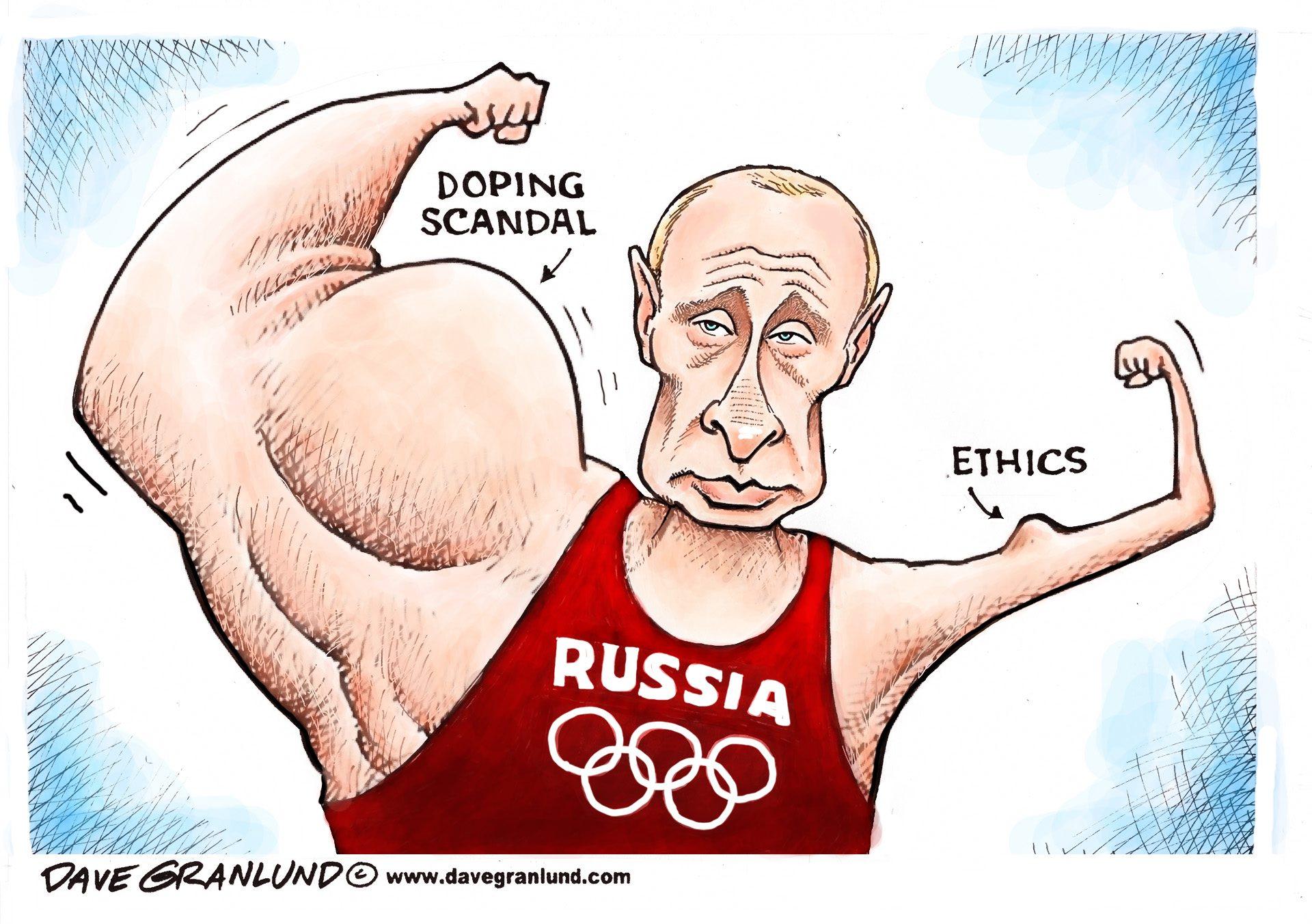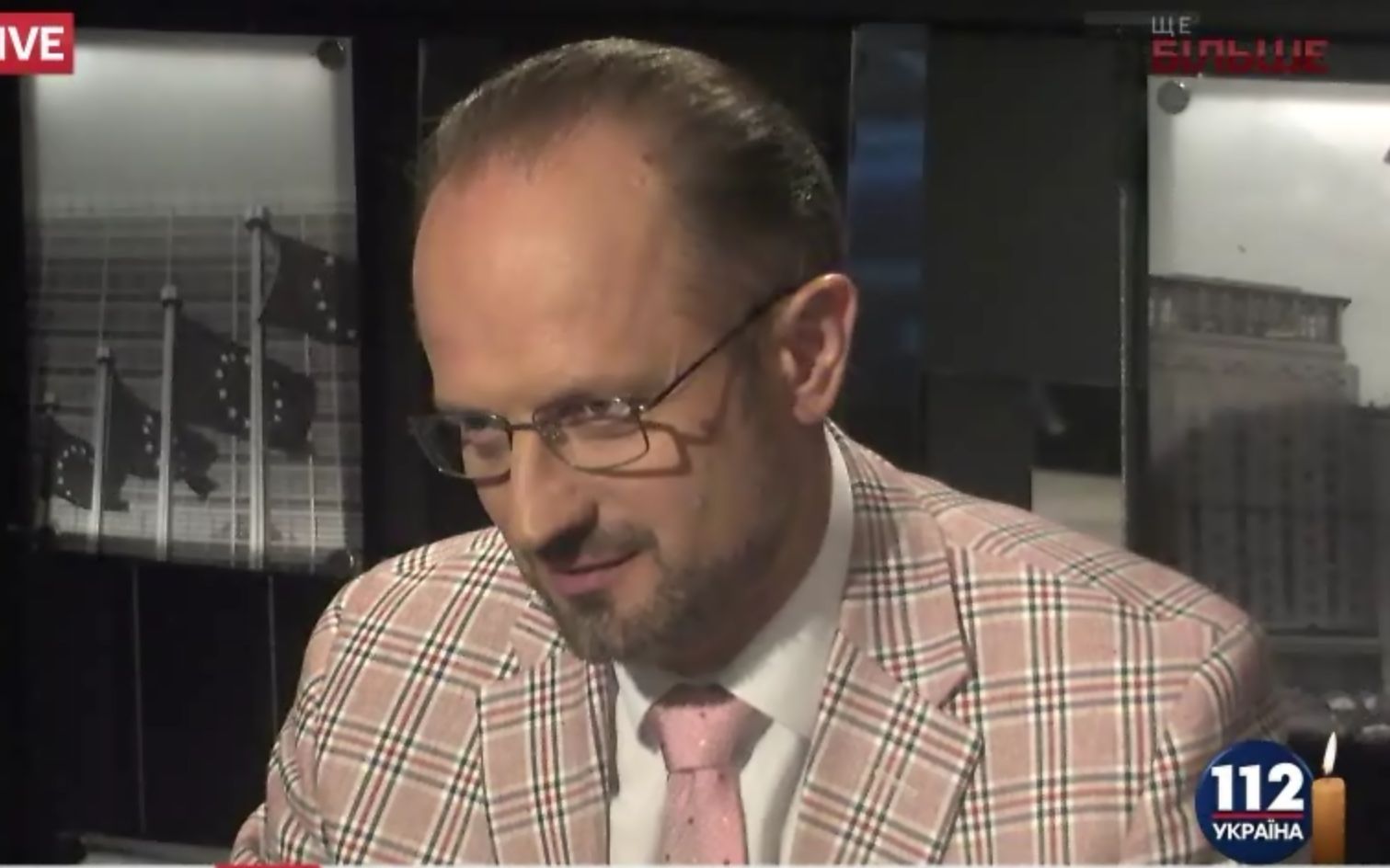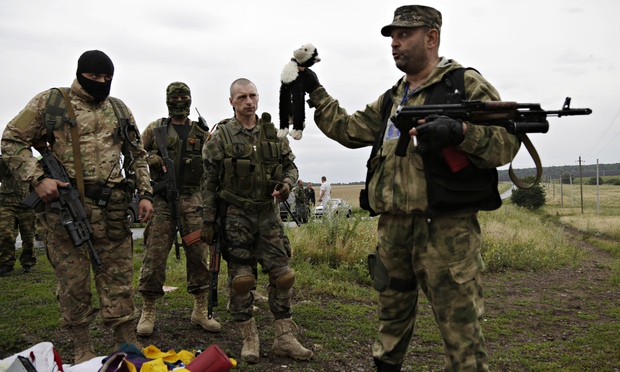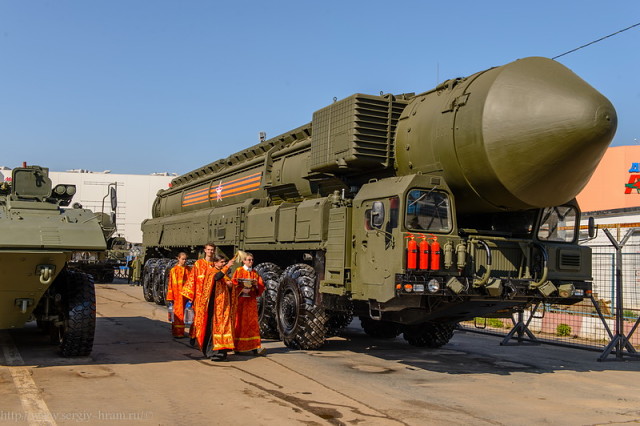Much attention has been devoted to the possibility that the doping scandal that has engulfed Russian sports will lead the International Olympic Committee to ban Russian athletes from participating in the upcoming Rio Olympic Games and that FIFA will follow and strip Russia of its right to host the 2018 World Cup competition.
But because of those possibilities, there is another, Vladislav Inozemtsev argues: Moscow could unilaterally boycott Rio. “We already took such a decision in the Soviet ties which are so beloved by our leadership,” he points out, suggesting that the propaganda explanations for such a step are obvious.
“How can [Russians] take part in competitions organized according to rules dictated by the United States?” Russian outlets will ask. And they will further inquire: How can they do so especially “in Latin America where Panama can’t keep banking secrets?” or “in Brazil where parliament is seeking to impeach a president for stealing from a national energy company?”
The Moscow commentator’s speculation comes at the end of an article in which he argues that the current scandals in the Russian sporting world are anything but unexpected in Vladimir Putin’s Russia and that, for three reasons, they tell far more about what is going on there than almost anything else.
First of all, Inozemtsev says, what Russia has done in sports is a reflection of what it wants to be able to do in all sectors: it wants to create a situation in which “all methods are considered acceptable” and where Moscow’s ability to “violate all rules” is a measure of its having lifted Russia from its knees.
“If it is permissible to send a killer with radioactive polonium to the capital of a European state, if one can seize part of the territory of neighboring countries, it is logical to use doubtful offshores [offshore companies used to collect large-scale bribes and avoid taxes - Ed.]” as a means of recapturing stolen money, “then why in the end should one observe the rules, given that the Kremlin has declared Russian sport a battlefield in politics and ideology?”
Given that today “no one believes Russia about anything” given this approach, no one should be surprised that the international community is focusing more on Russian athletes than on others or that this will continue for a long time to come. That is the true measure of Putin’s achievement, the commentator suggests.
Second, he continues, the only surprise is that it took the world this long to recognize what Moscow was doing at the Sochi Olympiad. Anyone who studies the pattern of Russian medal winners in Olympiads since the 1970s can see that Russia was losing out over time but suddenly at Sochi won 4.5 times as many medals as it did in the previous games.
Some are inclined to explain this by reference to a home field advantage, but an examination of the fate of other national teams who competed in Olympics abroad and then in one at home does not support that contention, Inozemtsev says. Such teams benefited some but nothing on the Russian scale.
And third, there is another reason why Russia is doping its athletes to win victories: sports are increasingly a big money operation, and concerns about doping have tracked the rise of money athletes can earn and that host governments can take in. Given the centrality of cash in Putin’s world, it should not surprise anyone that he has been prepared to go for broke.
Such an approach may work on occasion, Inozemtsev says; but it clearly works best when it is used least often. However, “if such an attitude becomes the only permissible one, then one won’t have to wait very long for problems to arise.” That is especially the case in a field like international athletics.
“Unlike the publication of compromising financial documents,” he points out, actions in that field “are visible and obvious.” Punishments are something that can be meted out by officials and are easily understood by all. If the IOC strips Russia of only four or five medals from Sochi, the country’s ranking will fall from first to fourth or fifth.
Given that that would be only the first step on the road to the disqualification of Russian athletes for the upcoming Olympics, Russian officials have to decide how to react. So far, as the article by Sports Minister Vitaly Mutkov in the London “Times” shows, they have decided to follow “the best Russian bureaucratic traditions” and blame the athletes “who deceived us.”
That may not be enough, however, to persuade the IOC that Russia should be allowed to take part in the Rio Games. And if it strips Russia of that right, Moscow will have to come up with more effective propaganda, perhaps presenting the CIS Spartakiad in the Russian capital this summer as the “true” Olympics.
That might suit the Kremlin’s needs because in that competition one can be sure, Russian athletes will garner just as many medals as the FSB decides on in advance and as the country’s anti-doping agency allows to win through.
Related:
- Doping scandal may cost Moscow the 2018 World Cup, analysts say
- Another baker's dozen of neglected Russian stories
- Three reasons why Russia should be stripped of 2018 World Cup
- Unless Moscow suppresses racism, World Cup can't be held in Russia, FIFA VP says
- FIFA could strip Russia of 2018 World Cup for illegal inclusion of Crimean clubs in Russian leagues




![Vladimir Putin's wrestling coach, the person who reportedly helped him get admitted to the Leningrad State University using his connections, was one of the city's top criminals, had served 20 years in prison, and died in a gang battle at 57. Putin admiringly wrote about him in his memoirs called "From the First Person" without using the coach's surname or mentioning his criminal links (for obvious reasons). As the engraving on his grave stone states, the coach Leonid Ionovich Usvyatsov composed the epitaphs himself. [Translator: Please note that in the original Russian the epitaphs crudely rhyme, but the translation did not attempt to reproduce rhyming prioritizing accuracy instead.] The epitaph on the front panel says: "A grave and on the grave there is an epitaph: 'I am dead, but mafia is immortal.'" The back panel is engraved with the following epitaphs: "Hooray! I finally died!!! All of my life I worked for broads like a slave. Now I won't spend a kopeck on this liver sausage anymore." "I gave her my two final bangs and then was carried away on a hearse." "Let's drink to us all, because the curtain will soon fall." (Image: openrussia.org)](https://euromaidanpress.com/wp-content/uploads/2015/12/4bbcb9a683811.gif)
